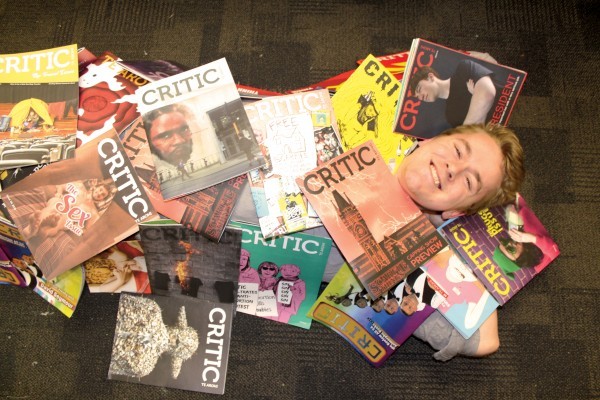The sentiment that journalism is dying is thrown around so often that it seems a tired subject at this point. It’s treated as an inevitable. Last week’s report that Newshub, one of our major media sources in Aotearoa, is being forced to close was surprising but banal. It was merely another death in a string of casualties. Just one week following, news broke that TVNZ is set to lay off staff as well, with employees being told to check their emails on Thursday, March 7th to see if they had been cut. Around the same time, the ASPA press gallery pass to Parliament was denied, discrediting student journalism as a plausible medium for political news.
As both large-scale news sources and student magazines face continued impediments to their reporting, what is the future of media for students, as both the creator and consumer?
After Newshub’s closure, Aotearoa will be left with only one major TV news source in the form of government-owned TVNZ. To quote journalist David Farrier, “This is both sort of embarrassing and worrying: who is going to hold the government-owned broadcaster to account? Who will keep it on its toes?” What’s even more interesting is how this Newshub-sized vacuum will be filled.
In recent years, we have seen the increased notoriety of conspiracy-aligned, right-wing news sources such as ‘Reality Check Radio’ (RCR). This station emerged from the anti-vaxxer movement and describes itself as an “oasis of rational thought in an age of cancel-culture, censorship, and false narratives.” RCR has interviewed both white nationalists linked to the Christchurch terror attacks and sitting government ministers, including ACT's David Seymour and NZ First's Winston Peters. Worryingly, fringe media sources such as RCR are being depended upon and trusted at face value, even by the people who lead our country. As funding is cut for accurate and fair investigative journalism, people are forced to rely upon alternative media sources who have the freedom to spread misinformation should they please.
This is not to say that we should ignore all smaller media outlets. On the other side of the coin, you have student magazines like Critic Te Ārohi, who benefit just as much as those on the far-right. Providing solid reporting is hard, however, when our ability to report on issues is being actively restricted by the government. If both the government and private companies cannot be trusted to support journalism, then they must entrust others with reporting on political issues. By taking away our power as student magazines to report on such issues, the government is shielding itself from any part of democracy that could negatively affect them. This is made glaringly apparent by the fact that we have government leaders who would rather be interviewed by a radio station that gives a white supremacist the time of day than allow student journalism access to the information and resources they need to investigate political issues.
Critic Te Ārohi is the Otago student voice. Look around campus on a Monday morning: how many people stand waiting for their lectures reading Critic? How many friends do you know with Critic walls, sticking up the centrefolds as a show of Otago pride? If student magazines are being overlooked — being seen as fluff not deserving of ‘hard’ political issues — what does that mean for the future of student democracy? If we are unable to properly report on parliamentary issues, how can we, as arguably the main source of news for the student population, be expected to inform students of issues that impact them now and in the future?
We make up an important percentage of the population that does not deserve to be ignored. We have a right within our democracy to be informed of issues that concern us. Now, more than ever, is a time when students should have access to the news. The cost of living crisis heavily impacts students; our universities are having their funding stripped away; we are the next generation of home buyers who are being screwed over by biased policies that turn a blind eye to our needs. We should have the political spotlight on us but are instead being pushed off stage as our access to media is limited.
This week’s spiralling series of events, from the closure of Newshub, to the announced job losses at TVNZ, and the removal of ASPA’s press gallery pass, perfectly illustrate the lack of concern for journalism in contemporary New Zealand. Not only is it concerning for our democratic society as a whole, but it’s really badly fucking over students and their ability to be informed about decisions which may impact their future. All journalism is under threat in Aotearoa New Zealand. No one is safe.



